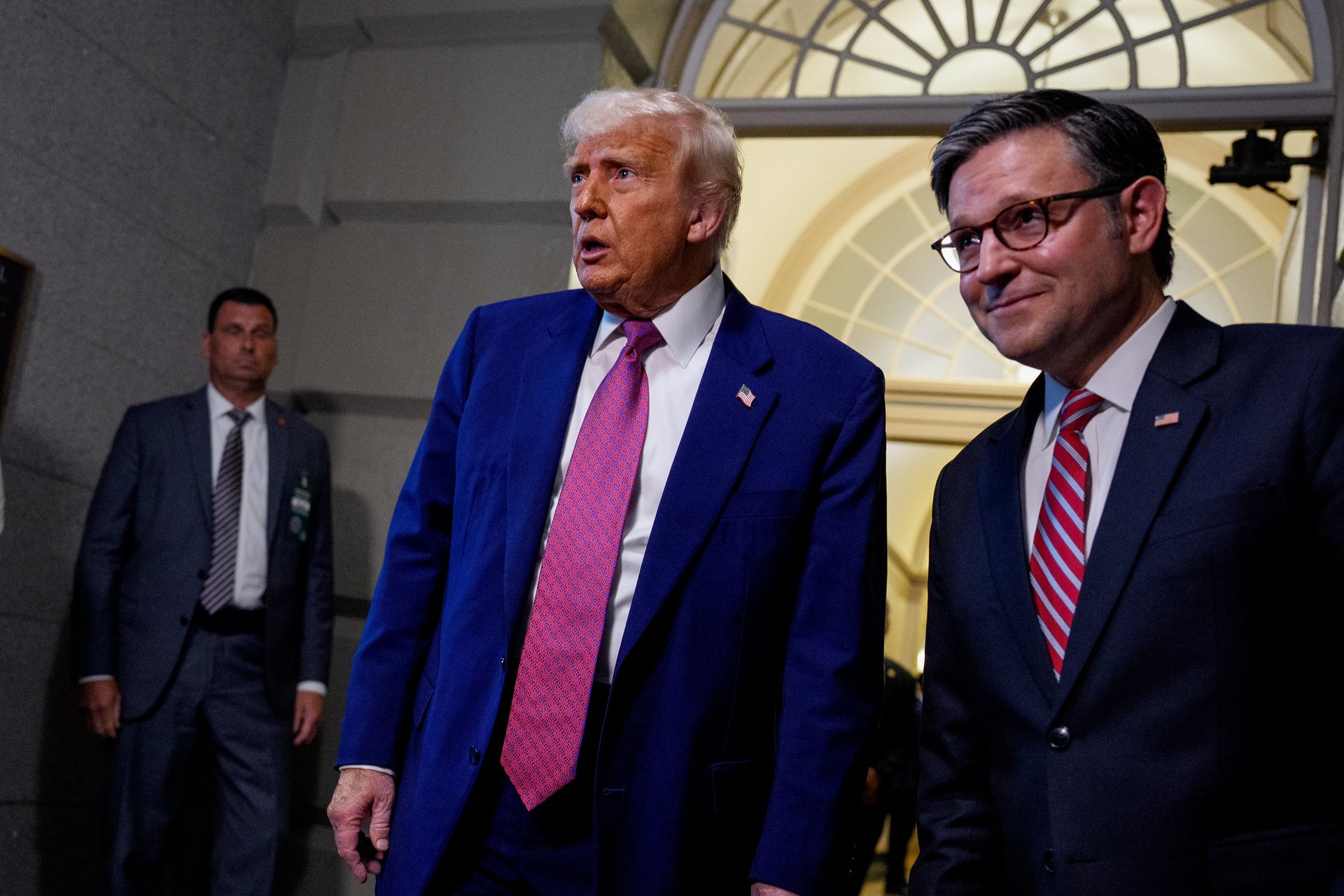Republicans want tax cuts to save the economy from Trump's tariffs. Not so fast, experts say
Goldman Sachs says the pro-growth elements of a sweeping domestic policy bill would likely be swamped by the negative effect of the trade war

House Republicans are rushing to get a sweeping domestic policy bill over the finish line within days, as uncertainty over President Donald Trump’s on-and-off approach to tariffs continues to hang over the economy.
Suggested Reading
The self-imposed Memorial Day deadline from House Speaker Mike Johnson is part of an aggressive effort to get the legislation carrying the bulk of Trump’s agenda to his desk by July 4. Trump visited Capitol Hill on Tuesday to persuade Republican holdouts to swallow their reservations and fall in line behind the measure, which is expected to face united Democratic opposition. “I think we’re going to get everything we want,” Trump said.
Related Content
The bill would renew a suite of tax cuts set to expire at the end of the year, including a larger child tax credit and doubled standard deduction for families. It temporarily restores a set of research and investment-related tax deductions for businesses as well. It is partly paid for by the elimination of clean energy tax credits and sizable cuts to the social safety net.
Republican leaders are betting the $3.8 trillion legislation will rescue the economy from the blunt-force impact of Trump’s tariff regime. In an interview on Fox Business last month, Johnson called the bill “rocket fuel” for the economy and said it would pacify investors unnerved by sweeping tariffs.
Recent analyses, though, are forecasting a different outcome. An analysis released Tuesday from the right-leaning Tax Foundation said the tariffs cancel out projected economic growth from the tax legislation. The current GOP legislation would boost long-term gross domestic product by 0.6% while the tariffs would shave off an equal percentage of GDP. That’s before taking into account the potential for retaliatory tariffs imposed on U.S. products by other countries.
“On the GDP side, they’re basically a wash,” said Garrett Watson, director of policy analysis at the Tax Foundation. He added that the tariffs would eat into much of the benefits for the poorest 20% of taxpayers because they’re more likely to spend their income.
A Goldman Sachs (GS) note Monday said the pro-growth elements of the tax package are likely to get swamped by the negative effect of Trump’s tariffs, which have rattled financial markets and led major retailers including Walmart (WMT) to warn about pending price hikes to safeguard their thin profit margins.
“The hit to growth from tariffs will more than offset the boost to growth from the fiscal package,” Goldman chief economist Jan Hatzius said. Goldman analysts projected tariffs would serve as a drag on the economy in 2026 in particular, as more of the effects are felt by families and firms of all sizes.
One influential House Republican said he has heard from farmers in his state that they’ve been locked out of international markets due to new trade barriers.
“Some of our [agricultural] producers say they’ve lost market share overseas in the last month,” Rep. Don Bacon of Nebraska told Quartz. “We need the tax cuts extended but we also need to replace lost markets. That’s why biofuels are important.”
Most of the tax package is focused on renewing existing policies sunsetting at year’s end and preserving the status quo, including the signature tax cuts from Trump’s first term. Republicans made plenty of the corporate pieces permanent when they first passed the law in 2017, gambling that a future Congress would be on the hook to extend most provisions for U.S. households or face punishment at the ballot box over tax increases. Now Republicans control both chambers of Congress, the White House, and the fate of their tax law.
Trump isn’t a stranger to tariffs. In his first term, the brunt of them fell on a familiar foe: China. That was a limited campaign compared to the armada of tariffs now imposed on most countries around the world. Still, there is real-world data from that period. An analysis last year about the fallout of those initial tariffs indicated that once they kicked in, companies dramatically pulled back their investment spending that had been juiced by the 2017 GOP tax law.
“When tariff revenue spiked,” wrote tax expert Adam Michel at the libertarian Cato Institute, “business investment growth plummeted.”